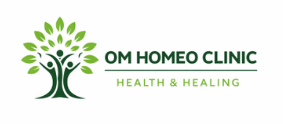Subtotal $0.00
When it comes to healthcare, the choice of treatment plays a vital role in healing and overall well-being. Two of the most commonly discussed systems of medicine are Homeopathy and Allopathy (conventional modern medicine). Each has its own strengths, methods, and limitations.
So, how do you decide which is right for you? Let’s explore both systems to help you make an informed, balanced decision for your health.
🔬 What is Allopathy?
Allopathy, also known as conventional or Western medicine, is the dominant form of treatment worldwide. It uses chemically-formulated drugs and surgical methods to treat disease by targeting symptoms directly.
✅ Strengths of Allopathy:
- Quick symptom relief
- Advanced diagnostics and emergency care
- Effective in surgical and life-threatening conditions
- Specialized treatments (e.g., oncology, cardiology)
❌ Limitations:
- Focuses mainly on symptom suppression, not root cause
- Often involves side effects
- Over-reliance on antibiotics and steroids
- May not be suitable for long-term management of chronic diseases
🌿 What is Homeopathy?
Homeopathy is a holistic medical system founded by Dr. Samuel Hahnemann over 200 years ago. It is based on the principle of “like cures like” — a substance that causes symptoms in a healthy person can treat similar symptoms in a sick person when diluted appropriately.
✅ Strengths of Homeopathy:
- Addresses root cause, not just symptoms
- No side effects or chemical toxicity
- Safe for all ages (infants, pregnant women, elderly)
- Effective for chronic conditions and emotional well-being
- Focuses on individualized treatment
❌ Limitations:
- Slower action in acute or emergency conditions
- Needs expert guidance for accurate results
- Not suitable for surgical conditions or traumatic injuries
🆚 Key Differences at a Glance
| Aspect | Homeopathy | Allopathy |
|---|---|---|
| Approach | Holistic & individualized | Symptom-based & generalized |
| Treatment Focus | Root cause of disease | Immediate relief from symptoms |
| Medicines | Natural, diluted, non-toxic | Synthetic drugs, may cause side effects |
| Chronic Illnesses | Highly effective | Often managed with ongoing medication |
| Acute Conditions | Mild to moderate effectiveness | Highly effective, especially in emergencies |
| Side Effects | None | Common, especially with long-term use |
🤔 Which One Should You Choose?
The answer depends on your health condition, urgency, and personal preferences.
Choose Allopathy if:
- You are facing a medical emergency (heart attack, accident, infections)
- You require surgery or advanced imaging and diagnosis
- You need immediate pain relief or life-saving intervention
Choose Homeopathy if:
- You suffer from chronic health issues (migraine, asthma, allergies, PCOS)
- You want long-term healing with no side effects
- You’re looking for natural, gentle remedies
- You prefer a personalized and holistic approach
🏥 Integrative Approach: Best of Both Worlds
Many patients today choose a combined or integrative approach, using homeopathy for long-term healing and allopathy for immediate or critical care. This combination ensures both safety and effectiveness without the overuse of drugs or suppression of symptoms.
At Om Homeo Clinic, we often support patients who are also undergoing conventional treatments by boosting their immunity, reducing side effects, and addressing the emotional or chronic components of illness.
Final Thoughts
Both Homeopathy and Allopathy have their place in healthcare. While allopathy is unbeatable in emergencies, homeopathy shines in offering gentle, long-term healing without side effects.
Ultimately, the best medicine is the one that heals you — safely, sustainably, and holistically.



